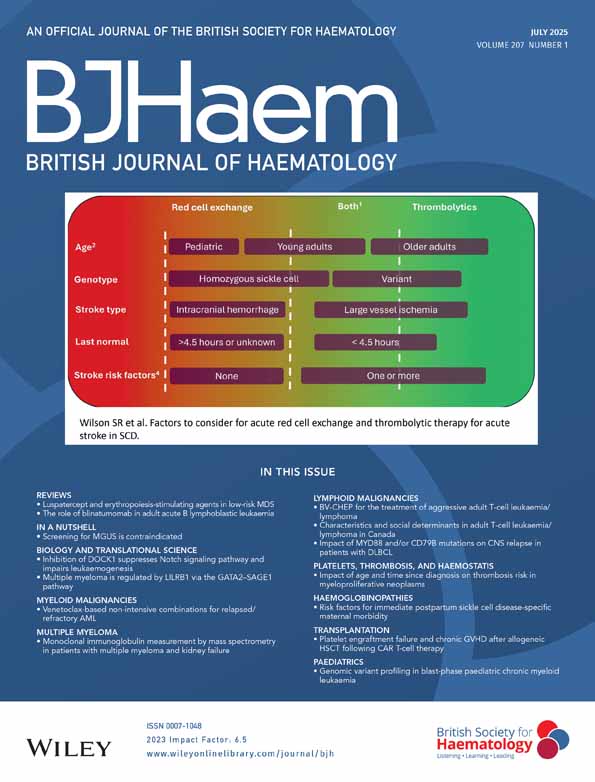Osteitis fibrosa cystica generalizata with adult T-cell leukaemia: a case report
Abstract
We report on a 62-year-old female initially suffering from extreme pain in both her lower extremities. Plain radiographs revealed multiple osteolytic lesions. Laboratory analyses indicated high levels of serum calcium and parathyroid hormone related protein (PTHrP) and detected HTLV-1 antibody. Histological examination of biopsied specimens which were obtained from osteolytic lesions indicated osteitis fibrosa cystica (OFC) without tumour cells. After the initial biopsy, a subcutaneous mass developed in the left thigh. Microsections of the biopsied mass disclosed adult T-cell leukaemia (ATL) neoplastic cells. Immunohistochemical findings revealed that PTHrP secreted from ATL neoplastic cells induced the OFC.




